«We have survived wars and we shall pull through COVID19»
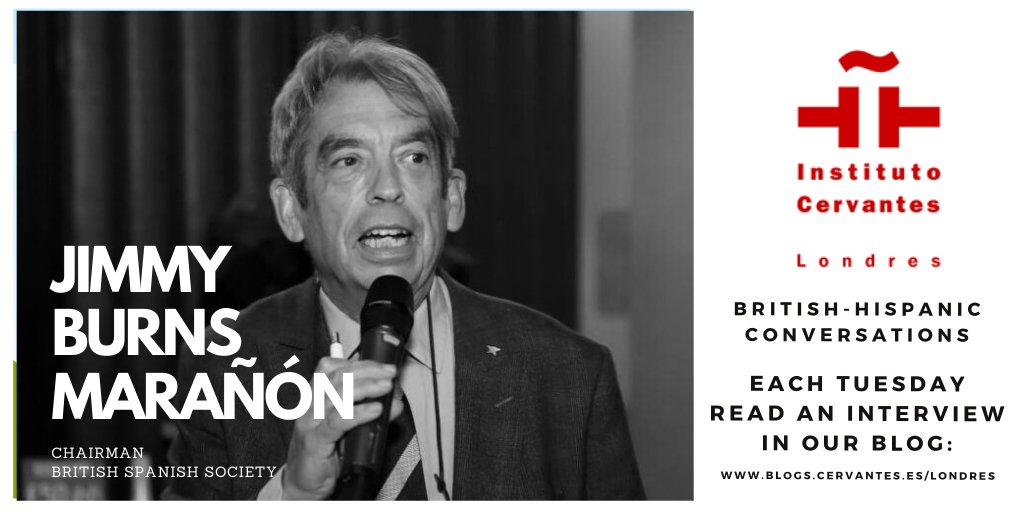
This week we continue a series of interviews with personalities from the Spanish-British sphere. Our second guest, Jimmy Burns Marañon, is the chairman of the BritishSpanish Society since March 2013. He tells us about the work and activities run by this charity, his journalism experience or his admiration for his late grandfather Dr Gregorio Marañon.
Born in Madrid in 1953 to a Spanish mother and British father, Burns is a journalist who worked for the Financial Times for over three decades (1979 – 2009), during which he was posted as a foreign correspondent in Lisbon, Madrid and Buenos Aires before working for the newspaper as a senior reporter in a number of fields including industrial relations, special investigations, politics, crime and security.
Burns is the author of several books and is an independent consultant on Spain and Latin America. He has been a member of the BritishSpanish Society since his university days in the 1970s and was appointed as Trustee and Vice-Chairman in 2009.
Aside from the BritishSpanish Society, Jimmy is also the Co-Founder of Friends of Battersea Park; has served as a member of the Management Council of Cañada Blanch Centre for Contemporary Spanish Studies (London School of Economics), as former President of the Stonyhurst Association and Non-Executive Director of The Tablet Publishing Company.
The Instituto de Cervantes in London actively supports the work of the BritishSpanish Society.
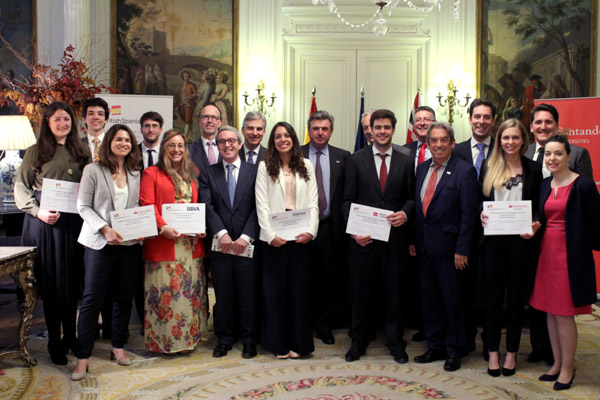
You are the Chairman of the BritishSpanish Society since March 2013. Could you tell us about the work you do, please?
We are a London based charity mainly run by volunteers with a network of individual members and corporate and institutional supporters in the UK and Spain . We have a clearly defined ethos and mission of engagement and dialogue through culture and education, and promoting friendship and understanding between the peoples of the UK and Spain. We organize social and cultural events, and panel discussions, and publish a very admired bi-cultural quarterly magazine online and in print. We are proud to award scholarships and bursaries to British and Spanish post-graduate students every year, thanks to our fund-raising activities and the generosity of our principal supporters, and in doing so we hope to encourage valuable research and learning which we believe to be beneficial for both the UK and Spain.
The BritishSpanish Society was founded in 1916 and through its more than hundred year history has survived wars, pandemics, and other international and national crises, and I believe we shall pull through COVID19.
I am aware of the challenging existence facing many of our members and supporters, and their friends and families, many of whom have communicated with me personally in recent days expressing a heartfelt sadness and worry.
The BSS draws resilience and strength through the basic rules of solidarity and good neighbourliness. These are challenging times in which we can rediscover our common humanity in doing what we need to do all that is necessary to protect the more vulnerable, and support each other so we can pull through this together.
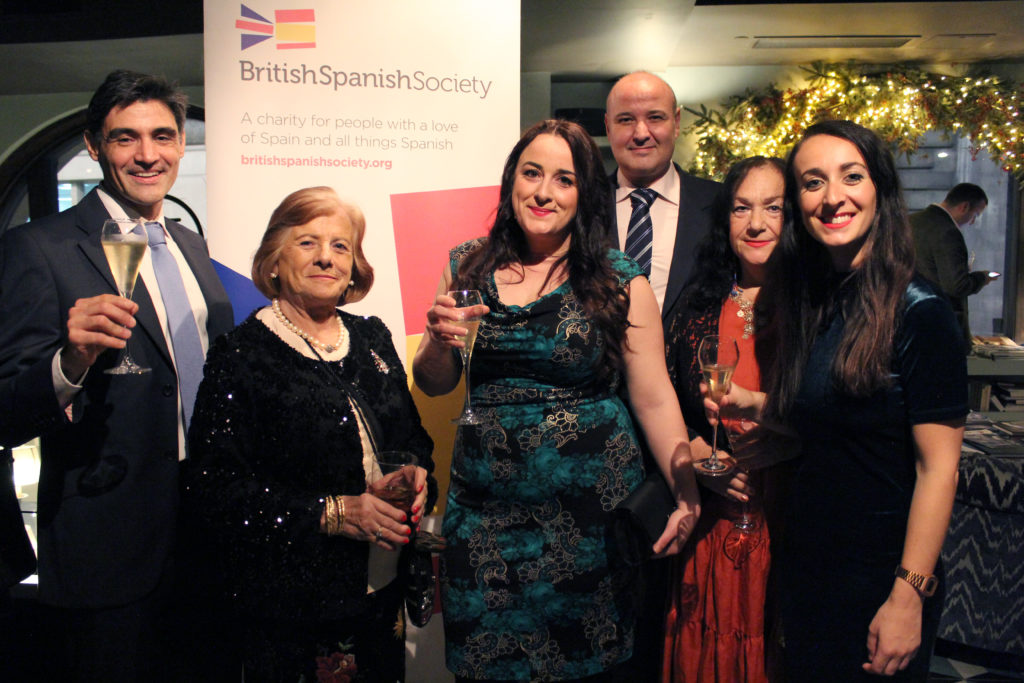
What events do you organize every year?
Our respective honorary president and honorary vice presidents, the Spanish Ambassador in London and the British Ambassador in Madrid annually host BritishSpanish Society receptions. Our annual scholarship awards ceremony is also held at the Spanish ambassador’s residence in London. Other regular events range include our annual Spanish musical evening, exclusive guided tours of special art exhibitions, panel discussions and conferences in the UK and Spain on cultural , historic and contemporary. With the COVID19 we have had to reorganize and adapt to the circumstances.
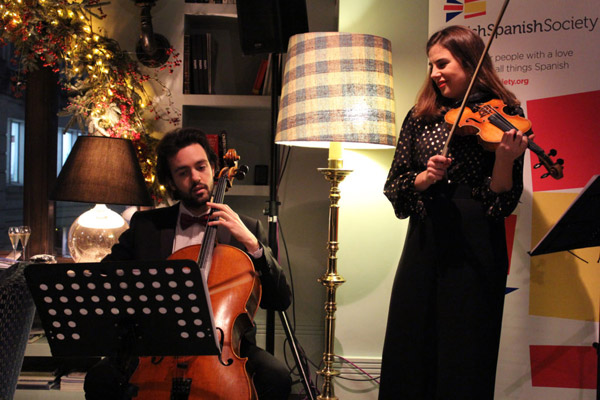
How has the COVID19 crisis affected your activity?
Given the bi-cultural nature of our charity and also mindful of the global uncertainty and disruption caused by the virus, and the priority of containing its spread and protecting the vulnerable, we have postponed until further notice all planned events in the UK and Spain.
The BSS continues monitoring the guidelines and protocols from the varied health authorities and we are looking forward to the day when it is safe to resume our normal activities For now, mindful of our mission and objectives, the charity continues as best it can to meet its cultural and educational commitments, with the selection of this year’s scholarship awards, and preparation for the next issue of our quarterly magazine La Revista.
We also keep in touch by phone and email, and reaching out to members and supporters and those who only are getting to know us now through our website news and daily social media feeds offering items that inspire. The aim is to have British and Spanish support each other, and keep engaged in a positive and constructive way providing a channel of communication and whenever possible to lift spirits through music, visual arts and literature.
I was born in Madrid from a Spanish mother and a British father have been straddling cultures all my life , and have family members and many friends in both countries. I feel at a personal as well as organisational level deeply affected by this crisis. My thoughts are with the vulnerable, those suffering, and those who have sadly died, and their loved ones.
The BritishSpanishSociety draws resilience and strength through the basic rules of solidarity and good neighbourliness. These are challenging times in which we can rediscover our common humanity.
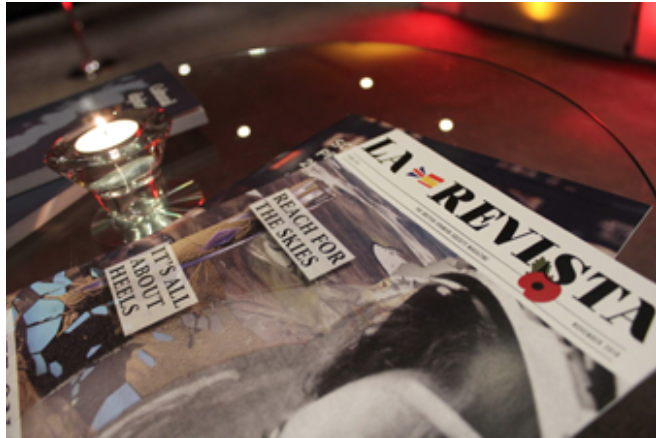
You also publish La Revista, the British Spanish Society’s flagship magazine. How often do you publish it? Where can readers find it?
La Revista is published four times a year, with autumn, winter, spring and summer. We distribute copies at our events, to our members and our institutional and corporate supporters. Articles are highlighted on our social media feeds, and the magazine is also readable in digital form,including on our website. www.britishspanishsociety.org.
How do you see British-Spanish relations in the context of Brexit?
While I shared the heartfelt sadness with the divisions provoked by the Brexit vote with many of our members and supporters, I have an enduring belief that there is much more that unites our peoples , and that we can learn from each other. Brexit means that Britain as a state is leaving the European Union, its laws and its institutions but the UK has always had one foot in and one foot out of the EU, and I am sure pragmatism on both sides will play an important part going forward. As one of the BritishSpanish Society patrons and former UK ambassador to Spain Sir Stephen Wright, has put it so well in an article published on our website, there is a wider set of relationships that Brexit need not and should not change. As he wrote “As we all know from our own lives and acquaintances, there are countless institutions and individuals in British society that have forged partnerships, collaborative arrangements and friendships with other Europeans to pursue their interests, their livelihoods and their passions. The fields of such endeavours range widely across society. This is a valuable social fabric of relationships that stretches across Europe.”
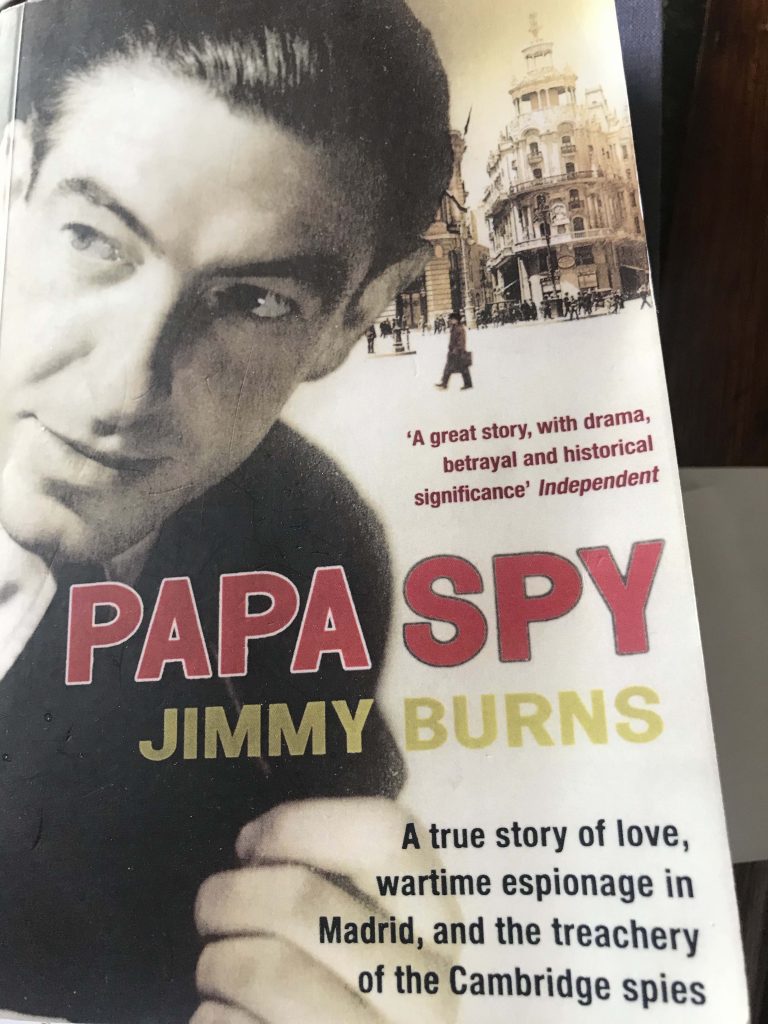
None can be certain how our bilateral relations will emerge from the health and socio-economic crisis provoked by the Corona Virus pandemic . The virus doesn’t respect frontiers or nationalities, no one known where it is going attack next. But I feel encouraged by the expression of human solidarity and selfless action by volunteers and frontline health and care staff we’ve seen in Spain and the UK. It is a shared resistance in pursuit of the common good against a faceless and invisible common enemy. So I hope this crisis will lead to a more energetic commitment to connectivity, cooperation, and mutual support in our relations. As we learn the lessons of this crisis, it will fall on civil society-all of us, from scientific and medical researchers, engineers, and technologists to artists and business people and yes the hardworking volunteers of the BSS-to speak up and deliver a better and healthier world.
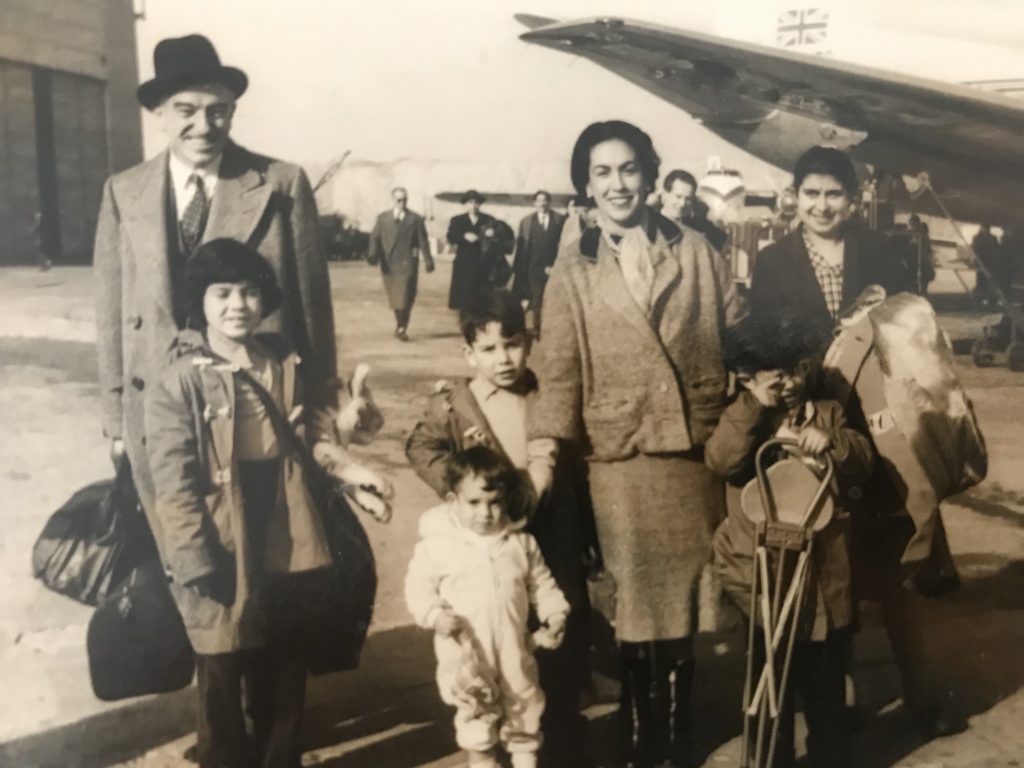
Born to a Spanish mother and a British father, it is almost 10 years since the publication of your book Papa Spy. Could you tell us a bit more about both of them and how did they influence your career?
As a writer, author, as well as a volunteer, to my mother Mabel Marañón, who spent much of her lifetime as a hardworking volunteer helping the Spanish community in London, I owe the enduring legacy of my Spanish maternal grandfather Dr Gregorio Marañón. He was not just a hugely gifted and caring physician but a liberal and a humanist , whose own life was an example of tolerance and cultural engagement. I felt very close to my grandfather as a child and will never forget aged seven on the 27th March 1960 being taken by my mother to his bedside to bid him a tearful farewell when he died in our family home in Madrid and how the Avenida Castellana was afterwards filled with so many people of all social backgrounds mourning him as his funeral cortège passed. Marañón had something worthwhile, incisive, and often prophetic, to say about almost everything from heathy diet to love and friendship, from the El Greco to the Spanish Civil War. His completed works provide an enduring reference for how to deal with life, his biographies of historic figures analyse the complexities of the human condition and politics -from shyness , envy and sexuality to power, intrigue and betrayal.
My father Tom Burns served his country in WW2 and from him I inherited an enduring respect for Churchill. Without forgetting his flaws and the need not to glorify him, I have always thought of Churchill in times of major crisis, his resilience, his ability to shine a light even in the darkest hour. I also thank my father for my Jesuit education which taught me that we are called to give the best of ourselves for others, and the lessons I learnt from him and other Ignatian mentors about the need to be honest and courageous as a writer and journalist.
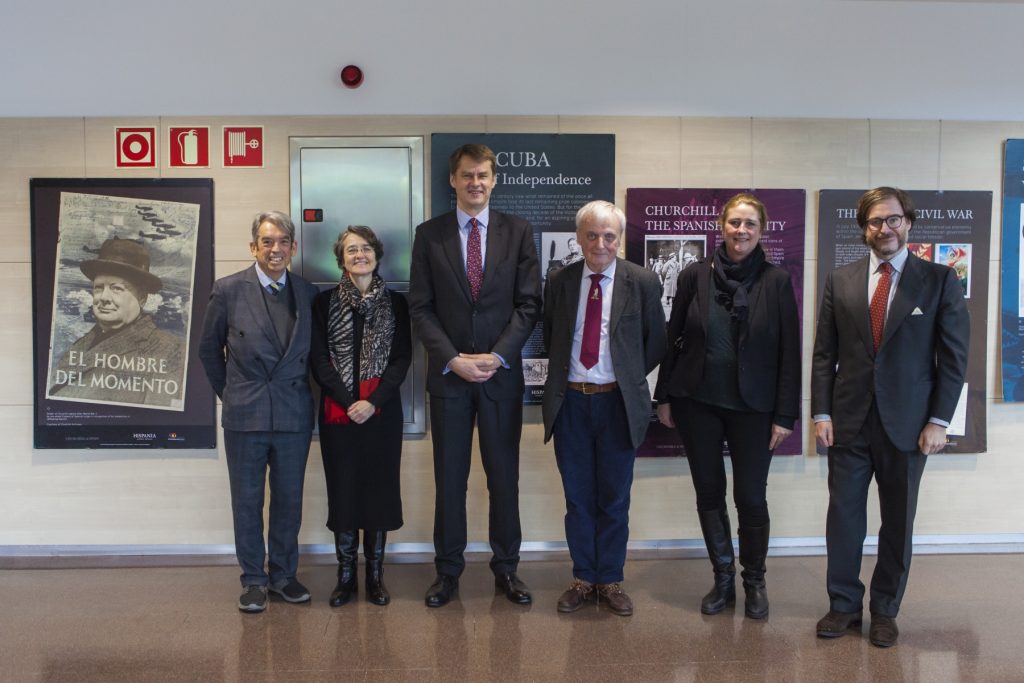
You are an Anglo-Spanish author & journalist and you are keeping a “London Diary”. Could you tell us a bit more of any writing you are working on at the moment?
I find writing is not just a calling, but a form of therapy, and keeping a diary helps me be aware, reflect, discern, and where necessary interpret and respond in challenging times. . One of the persons that has had an enduring influence on me is the memory and example of my late Spanish grandfather Dr Gregorio Marañon who had a great faith in mankind. I do recommend those who have not seen it yet the wonderful documentary that TVE produced on his exemplary life. I remember showing it at a joint panel event of the BritishSpanish Society and Instituto Cervantes in London a few years ago but it was shown recently shown by TVE 2 as part of their ‘Quedate en Casa’ campaign during the COVID19 crisis and can be found on this link.
I am also trying to use the time at home to pursue some unfinished new book projects including a biography of a friend of my father who was a spy in WW2 , and a novel about the Spanish Civil War in a small fishing village, and am planting some salad and spinach seeds in our patio garden because writing is part of living as well as survival.


